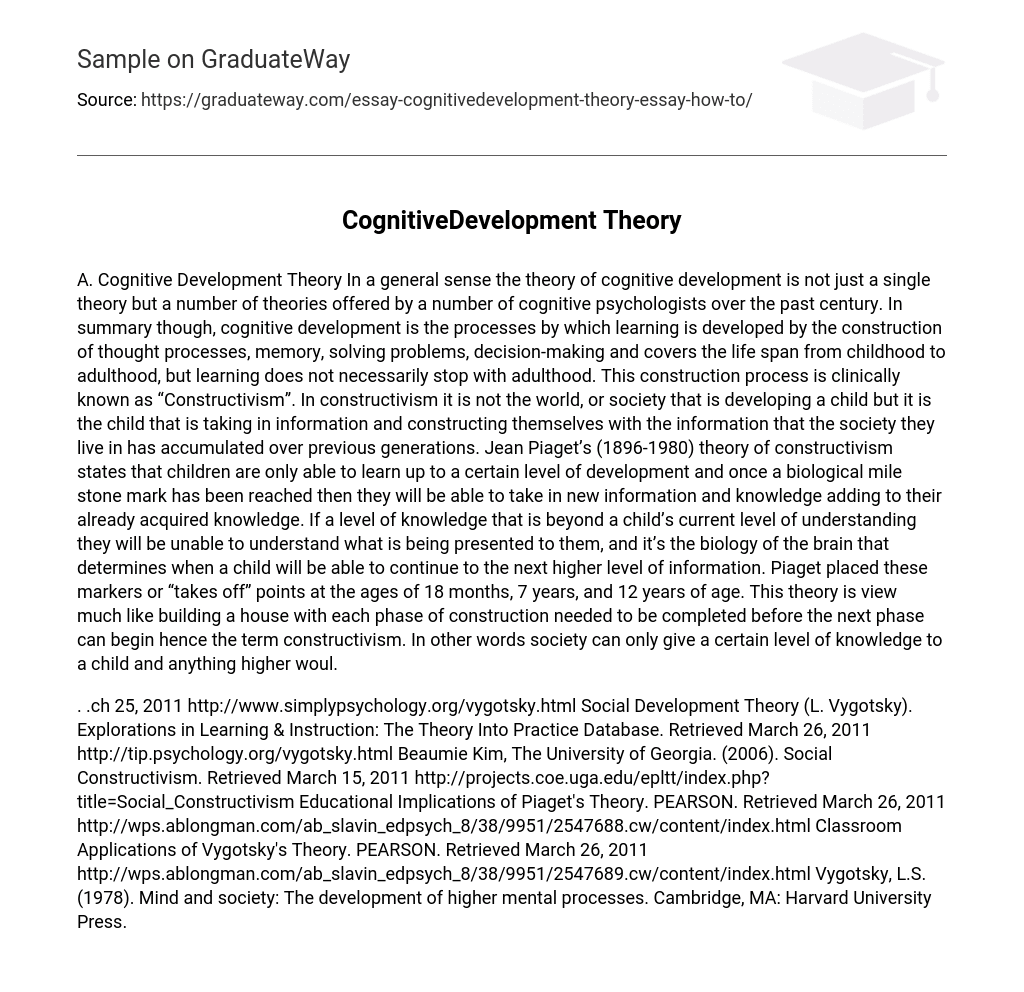The theory of cognitive development, called constructivism, comprises various theories put forth by cognitive psychologists in the last century. It involves constructing thought processes, memory, problem-solving, and decision-making abilities to achieve learning. This process occurs throughout one’s entire lifespan from childhood to adulthood and can extend beyond adulthood. In constructivism, the child acquires and utilizes information from society to develop their own understanding instead of being solely influenced by the world or society. They build upon the knowledge transmitted from previous generations.
Jean Piaget’s constructivist theory proposes that children’s capacity for learning is limited by their stage of development. According to this theory, children can only acquire new knowledge once they reach specific biological milestones. If a child encounters information that surpasses their current level of understanding, they will be unable to comprehend it. The brain’s biology determines when a child is prepared to progress to the next level of knowledge. Piaget identified these milestones at 18 months, 7 years, and 12 years old. This theory likens the learning process to constructing a house, where each phase must be completed before moving on to the next phase; hence its name “constructivism.” Essentially, society can only provide children with knowledge until a certain point because anything beyond that would be too advanced for them.
- . .ch 25, 2011 http://www.simplypsychology.org/vygotsky.html Social Development Theory (L. Vygotsky).
- Explorations in Learning & Instruction: The Theory Into Practice Database. Retrieved March 26, 2011 http://tip.psychology.org/vygotsky.html Beaumie Kim, The University of Georgia. (2006). Social
- Constructivism. Retrieved March 15, 2011 http://projects.coe.uga.edu/epltt/index.php?title=Social_Constructivism Educational Implications of Piaget’s Theory. PEARSON. Retrieved March 26, 2011 http://wps.ablongman.com/ab_slavin_edpsych_8/38/9951/2547688.cw/content/index.html Classroom
- Applications of Vygotsky’s Theory. PEARSON. Retrieved March 26, 2011 http://wps.ablongman.com/ab_slavin_edpsych_8/38/9951/2547689.cw/content/index.html Vygotsky, L.S. (1978). Mind and society: The development of higher mental processes. Cambridge, MA: Harvard University Press.





